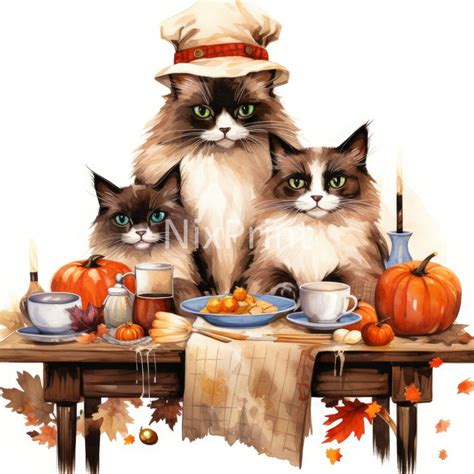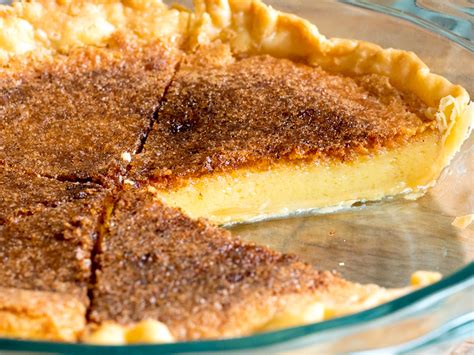
A video showcasing a Ragdoll cat named Alfredo joining his owner, Megan, for dinner has captivated the internet, amassing over 4.6 million views on TikTok due to its sheer adorableness. The feline’s impeccable table manners and focused attention on his food have turned him into a viral sensation, highlighting the unique bond between pets and their owners.
Ragdoll Cat’s Refined Dining Habits Charm Millions Online
Alfredo, a fluffy Ragdoll cat, has become an internet celebrity after a video of him sharing a civilized dinner with his owner, Megan, went viral on TikTok. The video, which shows Alfredo sitting upright at the table, attentively eating from his own bowl, has garnered over 4.6 million views and thousands of comments praising his exceptional manners and undeniable cuteness. The delightful scene underscores the growing trend of pet owners including their animals in everyday activities, further solidifying the role of pets as cherished family members.
Megan, Alfredo’s owner, began sharing videos of Alfredo on TikTok in February 2023. Her account, dedicated to showcasing Alfredo’s daily life, quickly gained a following, with viewers drawn to the cat’s charming personality and endearing antics. However, it was the dinner date video that propelled Alfredo to viral fame. In the video, Alfredo sits patiently on a chair, his eyes fixed on his food, as he daintily eats each bite. He occasionally glances at Megan, seemingly enjoying the shared experience.
“It’s a normal thing in our household,” Megan stated in an interview, emphasizing that Alfredo’s presence at the dinner table is a regular occurrence. This declaration reinforces the idea that Alfredo is not just a pet but an integral part of the family, sharing meals and moments alongside his human companions. The video’s widespread appeal suggests a broader cultural shift towards viewing pets as equal members of the household, deserving of affection, inclusion, and even a seat at the table.
The comments section of the TikTok video is flooded with expressions of admiration and amusement. Many viewers have lauded Alfredo’s refined behavior, joking about his superior table manners compared to their own. Others have expressed a desire to have a similarly well-behaved feline companion. The video has also sparked discussions about the evolving role of pets in modern society and the lengths to which owners will go to create enriching experiences for their animal companions.
The video of Alfredo isn’t an isolated incident but reflects a broader trend of pet owners seeking to integrate their animals into their daily lives. From sharing meals to including pets in family vacations, pet ownership is increasingly characterized by a desire for companionship and shared experiences. This trend is further fueled by social media, where pet owners can showcase their animals’ personalities and connect with like-minded individuals.
The Ragdoll Breed: A Perfect Companion
Ragdoll cats, known for their docile and affectionate nature, are increasingly popular as family pets. Their relaxed temperament and striking blue eyes make them ideal companions for people of all ages. Ragdolls are also known for their tendency to go limp when held, hence the name “Ragdoll.” This trait, combined with their gentle demeanor, makes them particularly well-suited for households with children and other pets.
“They are known for being very gentle and loving cats,” explains veterinarian Dr. Emily Carter. “Their calm demeanor makes them excellent companions, and they often form strong bonds with their owners.” Dr. Carter notes that while Ragdolls are generally healthy, they are prone to certain genetic conditions, such as hypertrophic cardiomyopathy (HCM), a form of heart disease. Regular veterinary checkups and genetic testing can help mitigate these risks.
Ragdolls are also relatively low-maintenance in terms of grooming. Their long, silky fur requires regular brushing to prevent matting, but they are not prone to excessive shedding. They are also intelligent and trainable, making them relatively easy to teach basic commands and tricks. Their playful nature means they enjoy interactive toys and games, providing ample opportunities for bonding with their owners.
The breed’s history is relatively recent, originating in California in the 1960s. Ann Baker, a Persian cat breeder, is credited with developing the Ragdoll breed by selectively breeding cats with desirable traits, such as a docile temperament and a striking appearance. The breed quickly gained popularity, spreading throughout the United States and eventually to other parts of the world.
The Viral Impact: Pets and Social Media
Alfredo’s viral fame is a testament to the power of social media in shaping our perception of pets. Platforms like TikTok, Instagram, and YouTube have become outlets for pet owners to share their animals’ stories, personalities, and unique quirks. This has led to the emergence of “pet influencers,” animals with large social media followings who can generate significant income through sponsorships and collaborations.
“Social media has completely transformed the way we interact with pets,” says social media strategist Sarah Jones. “It has created a platform for pet owners to connect, share information, and celebrate their animals’ unique qualities. It has also given rise to a new industry of pet-related content creation, with brands eager to partner with popular pet accounts.”
The trend of sharing pet content on social media has several implications. It has raised awareness about animal welfare issues, promoted responsible pet ownership, and fostered a sense of community among pet lovers. It has also contributed to the destigmatization of certain breeds and encouraged adoption from animal shelters.
However, there are also potential downsides to the trend. The pressure to create engaging content can lead to the exploitation of animals, with some owners prioritizing views and likes over their pets’ well-being. It is essential to approach pet-related content on social media with a critical eye and to prioritize the welfare of animals above all else.
The Human-Animal Bond: A Deepening Connection
Alfredo’s dinner date video also highlights the deepening bond between humans and animals. For many people, pets are more than just companions; they are integral members of the family, providing emotional support, unconditional love, and a sense of purpose. This bond has been shown to have numerous health benefits, including reducing stress, lowering blood pressure, and improving overall well-being.
“Studies have shown that interacting with pets can release endorphins, which have mood-boosting effects,” explains psychologist Dr. David Miller. “Pet ownership can also provide a sense of structure and routine, which can be particularly beneficial for individuals struggling with mental health issues.”
The human-animal bond is a complex and multifaceted phenomenon, shaped by cultural norms, personal experiences, and evolutionary factors. Throughout history, animals have played a vital role in human societies, providing companionship, labor, and protection. As societies have evolved, the role of animals has shifted, with pets increasingly viewed as family members and sources of emotional support.
The rise of pet therapy programs further underscores the therapeutic benefits of interacting with animals. These programs utilize animals to provide comfort and support to individuals in hospitals, nursing homes, and schools. Pet therapy has been shown to reduce anxiety, improve mood, and promote social interaction.
Ethical Considerations in Pet Ownership
While the viral video of Alfredo celebrates the joy of pet ownership, it is essential to acknowledge the ethical considerations involved. Owning a pet is a significant responsibility, requiring a commitment to providing for the animal’s physical and emotional needs. This includes providing proper nutrition, veterinary care, exercise, and socialization.
“Responsible pet ownership is about more than just providing food and shelter,” says animal welfare advocate Jane Smith. “It’s about understanding the animal’s needs, respecting its natural behaviors, and ensuring that it lives a happy and fulfilling life.”
Animal shelters are often overwhelmed with unwanted pets, highlighting the importance of responsible breeding practices and spay/neuter programs. Adopting a pet from a shelter is a compassionate choice that can save an animal’s life and provide a loving home.
It is also important to consider the environmental impact of pet ownership. Pet food production can have a significant carbon footprint, and pet waste can contribute to water pollution. Choosing sustainable pet products and practicing responsible waste disposal can help minimize the environmental impact of pet ownership.
Conclusion: A Viral Moment Reflecting a Broader Trend
Alfredo’s dinner date video is more than just a cute internet sensation; it is a reflection of a broader trend of pet owners embracing their animals as integral members of the family. The video highlights the deepening bond between humans and animals and the growing recognition of the therapeutic benefits of pet ownership. While celebrating the joys of pet ownership, it is essential to acknowledge the ethical responsibilities involved and to prioritize the well-being of animals above all else. Alfredo’s story serves as a reminder of the unique and special connection we share with our animal companions and the joy they bring to our lives. The viral video not only made people smile but also brought forward the importance of pets in the family and highlighted pet ownership trends.
Expanded Context and Analysis
The viral success of Alfredo’s dinner date video can also be attributed to several factors related to internet culture and social media trends. Firstly, the video aligns with the broader trend of seeking “wholesome content” online. In an increasingly polarized and often negative online environment, content that evokes positive emotions, such as joy, amusement, and tenderness, tends to resonate strongly with audiences. Alfredo’s video, with its depiction of a well-behaved and adorable cat engaging in a human activity, fits perfectly into this category.
Secondly, the video’s virality is linked to the increasing popularity of animal-related content on platforms like TikTok and Instagram. These platforms provide a space for pet owners to showcase their animals’ personalities and create communities around shared interests. The algorithm-driven nature of these platforms also contributes to the spread of viral content, as videos that garner high engagement are more likely to be promoted to a wider audience.
Thirdly, the video’s success can be attributed to the relatability of the scenario it depicts. Many pet owners can identify with the desire to include their animals in everyday activities and to treat them as members of the family. The video taps into this shared experience, making it more likely to be shared and commented on by viewers who see themselves and their own pets reflected in the scene.
Furthermore, Alfredo’s breed, the Ragdoll, plays a role in the video’s appeal. Ragdolls are known for their gentle and affectionate nature, which makes them particularly appealing to potential pet owners. The breed’s striking appearance, with its fluffy fur and blue eyes, also contributes to their visual appeal, making them ideal subjects for social media content.
The cultural context surrounding pet ownership has also shifted in recent years, with pets increasingly viewed as integral members of the family. This shift is reflected in the growing number of pet-friendly businesses, the increasing availability of pet-related products and services, and the growing acceptance of pets in public spaces. Alfredo’s dinner date video reflects this cultural shift, showcasing a pet being treated as an equal member of the household.
The economic impact of the pet industry is also worth noting. According to the American Pet Products Association (APPA), Americans spent over $100 billion on their pets in 2020, a figure that is projected to continue to grow in the coming years. This reflects the increasing willingness of pet owners to invest in their animals’ well-being, including providing them with high-quality food, veterinary care, and enrichment activities.
The video of Alfredo also raises questions about the ethics of anthropomorphism, the attribution of human characteristics to animals. While many pet owners enjoy projecting human qualities onto their pets, it is important to remember that animals have their own unique needs and behaviors. Anthropomorphism can lead to misunderstandings about animal behavior and can even be detrimental to their well-being if it leads to inappropriate care or training methods.
The long-term impact of viral videos like Alfredo’s is difficult to predict. However, it is likely that the video will contribute to the continued growth of animal-related content on social media and the increasing acceptance of pets as integral members of the family. It may also inspire other pet owners to share their own animals’ stories and create communities around shared interests.
The underlying message of the video is one of love, companionship, and the joy of sharing life with an animal. In a world that is often characterized by division and negativity, such messages can be particularly powerful and resonant. Alfredo’s dinner date video is a reminder of the simple pleasures in life and the unique bond we share with our animal companions.
Ultimately, Alfredo’s viral fame is a testament to the enduring appeal of animals and the power of social media to connect people around shared interests and emotions. The video is a celebration of the human-animal bond and a reminder of the joy and companionship that pets bring to our lives. It also highlights the evolving role of pets in modern society and the growing recognition of their importance to our emotional well-being. The fact that a simple video of a cat eating dinner can capture the attention of millions underscores the deep connection that many people feel with their animal companions and the desire to share that connection with others.
Frequently Asked Questions (FAQ)
-
What breed of cat is Alfredo and why is that significant?
- Alfredo is a Ragdoll cat. This breed is known for its docile and affectionate nature, making them popular family pets. Their relaxed temperament and striking blue eyes contribute to their appeal. The breed’s characteristic of going limp when held (hence the name “Ragdoll”) adds to their endearing qualities.
-
What made the video of Alfredo at dinner go viral?
- The video went viral primarily due to Alfredo’s adorable appearance, combined with his well-behaved table manners. The scene of a cat attentively eating at a table like a human resonated with many viewers, highlighting the increasing trend of pet owners including their animals in daily activities. It offered “wholesome content” in a digital landscape often dominated by negativity.
-
What does Alfredo’s story say about pet ownership trends today?
- Alfredo’s story reflects the growing trend of treating pets as integral members of the family. Pet owners are increasingly including their animals in daily activities, seeking companionship and shared experiences. This trend is fueled by social media and the desire to showcase pets’ personalities. It signifies a cultural shift where pets are cherished and integrated into lifestyles more deeply.
-
Are there any ethical concerns related to pet ownership highlighted by Alfredo’s popularity?
- Yes, while Alfredo’s story is heartwarming, it underscores the importance of responsible pet ownership. This includes providing proper nutrition, veterinary care, exercise, and socialization. It also raises the issue of anthropomorphism, reminding pet owners to respect animals’ unique needs and behaviors without overly attributing human characteristics.
-
What impact does social media have on how we view and interact with pets?
- Social media has transformed how we view and interact with pets by providing a platform for pet owners to connect, share information, and celebrate their animals’ unique qualities. It has created “pet influencers” and promoted responsible pet ownership. However, it also raises concerns about potential exploitation of animals for content creation, emphasizing the need to prioritize animal welfare above all else.









